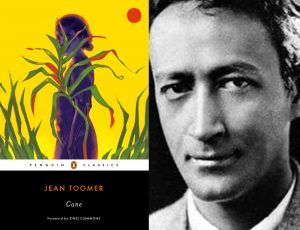Ismail Muhammad at the Paris Review:
 The literary world was then (as it is now, perhaps) hungry for representative black voices; as Hutchinson writes, “Many stressed the ‘authenticity’ of Toomer’s African-Americans and the lyrical voice with which he conjured them into being.” This act of conjuring lured critics into reflexively accepting the book as a representation of the black South—and Toomer as the voice of that South. As his one-time friend Waldo Frank remarked in a forward to the book’s original edition, “This book is the South.” Cane transformed Toomer into a Negro literary star whose influence would filter down through African-American literary history: his interest in the folk tradition crystallized the Harlem Renaissance’s search for a useable Negro past, and would be instructive for later writers from Zora Neale Hurston to Ralph Ellison to Elizabeth Alexander.
The literary world was then (as it is now, perhaps) hungry for representative black voices; as Hutchinson writes, “Many stressed the ‘authenticity’ of Toomer’s African-Americans and the lyrical voice with which he conjured them into being.” This act of conjuring lured critics into reflexively accepting the book as a representation of the black South—and Toomer as the voice of that South. As his one-time friend Waldo Frank remarked in a forward to the book’s original edition, “This book is the South.” Cane transformed Toomer into a Negro literary star whose influence would filter down through African-American literary history: his interest in the folk tradition crystallized the Harlem Renaissance’s search for a useable Negro past, and would be instructive for later writers from Zora Neale Hurston to Ralph Ellison to Elizabeth Alexander.
For Toomer, however, this close identification with black folk culture, and the Negro in general, was inimical to his own self-conception. He largely attempted to evade conventional modes of racial identification. As he pursued a career as a writer, the young artist began to articulate an idiosyncratic and highly individualistic notion of race wherein he was “American, neither black nor white, rejecting these divisions, accepting people as people.”
more here.
